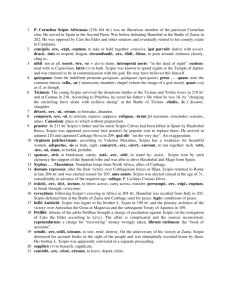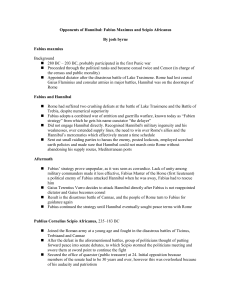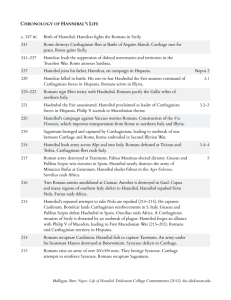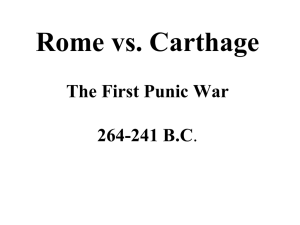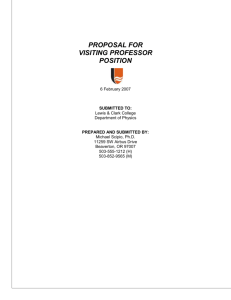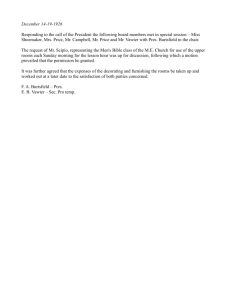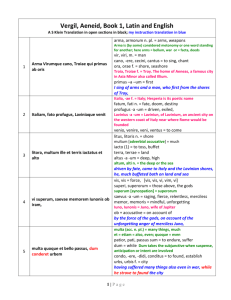Commentary
advertisement
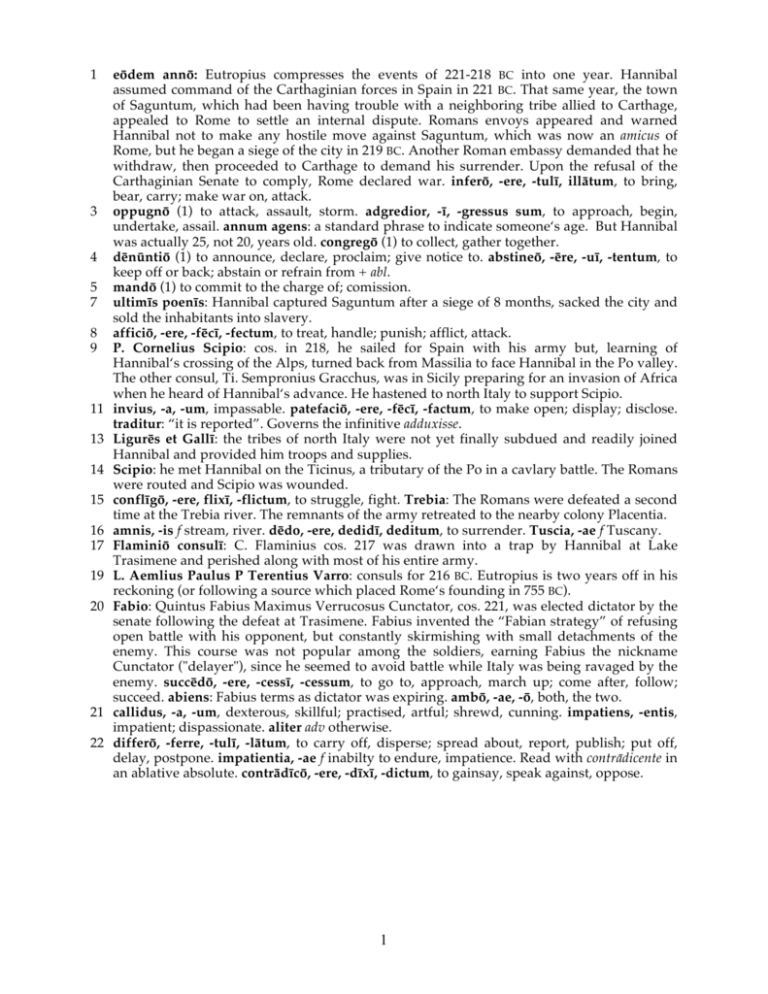
1 3 4 5 7 8 9 11 13 14 15 16 17 19 20 21 22 eōdem annō: Eutropius compresses the events of 221-218 BC into one year. Hannibal assumed command of the Carthaginian forces in Spain in 221 BC. That same year, the town of Saguntum, which had been having trouble with a neighboring tribe allied to Carthage, appealed to Rome to settle an internal dispute. Romans envoys appeared and warned Hannibal not to make any hostile move against Saguntum, which was now an amicus of Rome, but he began a siege of the city in 219 BC. Another Roman embassy demanded that he withdraw, then proceeded to Carthage to demand his surrender. Upon the refusal of the Carthaginian Senate to comply, Rome declared war. inferō, -ere, -tulī, illātum, to bring, bear, carry; make war on, attack. oppugnō (1) to attack, assault, storm. adgredior, -ī, -gressus sum, to approach, begin, undertake, assail. annum agens: a standard phrase to indicate someoneʻs age. But Hannibal was actually 25, not 20, years old. congregō (1) to collect, gather together. dēnūntiō (1) to announce, declare, proclaim; give notice to. abstineō, -ēre, -uī, -tentum, to keep off or back; abstain or refrain from + abl. mandō (1) to commit to the charge of; comission. ultimīs poenīs: Hannibal captured Saguntum after a siege of 8 months, sacked the city and sold the inhabitants into slavery. afficiō, -ere, -fēcī, -fectum, to treat, handle; punish; afflict, attack. P. Cornelius Scipio: cos. in 218, he sailed for Spain with his army but, learning of Hannibalʻs crossing of the Alps, turned back from Massilia to face Hannibal in the Po valley. The other consul, Ti. Sempronius Gracchus, was in Sicily preparing for an invasion of Africa when he heard of Hannibalʻs advance. He hastened to north Italy to support Scipio. invius, -a, -um, impassable. patefaciō, -ere, -fēcī, -factum, to make open; display; disclose. traditur: “it is reported”. Governs the infinitive adduxisse. Ligurēs et Gallī: the tribes of north Italy were not yet finally subdued and readily joined Hannibal and provided him troops and supplies. Scipio: he met Hannibal on the Ticinus, a tributary of the Po in a cavlary battle. The Romans were routed and Scipio was wounded. conflīgō, -ere, flixī, -flictum, to struggle, fight. Trebia: The Romans were defeated a second time at the Trebia river. The remnants of the army retreated to the nearby colony Placentia. amnis, -is f stream, river. dēdo, -ere, dedidī, deditum, to surrender. Tuscia, -ae f Tuscany. Flaminiō consulī: C. Flaminius cos. 217 was drawn into a trap by Hannibal at Lake Trasimene and perished along with most of his entire army. L. Aemlius Paulus P Terentius Varro: consuls for 216 BC. Eutropius is two years off in his reckoning (or following a source which placed Romeʻs founding in 755 BC). Fabio: Quintus Fabius Maximus Verrucosus Cunctator, cos. 221, was elected dictator by the senate following the defeat at Trasimene. Fabius invented the “Fabian strategy” of refusing open battle with his opponent, but constantly skirmishing with small detachments of the enemy. This course was not popular among the soldiers, earning Fabius the nickname Cunctator ("delayer"), since he seemed to avoid battle while Italy was being ravaged by the enemy. succēdō, -ere, -cessī, -cessum, to go to, approach, march up; come after, follow; succeed. abiens: Fabius terms as dictator was expiring. ambō, -ae, -ō, both, the two. callidus, -a, -um, dexterous, skillful; practised, artful; shrewd, cunning. impatiens, -entis, impatient; dispassionate. aliter adv otherwise. differō, -ferre, -tulī, -lātum, to carry off, disperse; spread about, report, publish; put off, delay, postpone. impatientia, -ae f inabilty to endure, impatience. Read with contrādicente in an ablative absolute. contrādīcō, -ere, -dīxī, -dictum, to gainsay, speak against, oppose. 1 23 vīcus, ī m village, hamlet; district of a town; street. Cannae: On August 2, 216 BC, Hannibal destroyed the combined consular armies of Paulus and Varro. Paulus fell in battle, Varro escaped to Venusia with a remnant of the army, leaving 50-70,000 dead on the field (the sources vary on the number of casualties). Rome’s Italian allies now defected in large numbers to Hannibal. 25 pereō, -īre, -iī, -itum, to perish, die. sauciō (1) to wound. 26 gravius: comparative adverb. acceptī sunt: were treated, were handled. nōbilēs: men whose ancestors had held imperium. 29 mentiō, -iōnis f mention, suggestion. dīgnor (1) to deem worth; deign, condescend. Indeed, the Senate refused an offer to ransom the prisoners taken by Hannibal (who were then sold into slavery) and, instead, ordered the purchase of 8,000 slaves with public funds, who were freed to serve in the army. manūmittō, -ere, -mīsī, -missum, to set free. Supply sunt. 31 multae Italiae civtātēs: most of southern Italy defected to Hannibal after Cannae, notably the great cities of Capua and Tarentum. 32 offerō, offerre, obtulī, oblātum, to place before, present; offer. redimō, -ere, -ēmī, -ēmptum, to buy back, redeem, ransom. 33 eōs cīves non esse: indirect speech with responsum est. cum: a concessive. capī: passive infinitive. 34 supplicium, -ī n punishment, torture. modius, -ī m a dry measure equivalent to a peck (2 gallons). Eutropius (or his source) exagerates. The Romans prisoners were sold into slavery. The amount of gold rings taken from the dead amounted to no more than one modius according to Livy. 36 dētrahō, -ere, -traxī, -tractum, to take or drag away, remove, withdraw. 37 M. Claudius Marcellus: consul in 222, 215, 214, 210, and 208 and proconsul otherwise during most of the war. In 215-214 BC he defeated Hannibalʻs attempts to seize Nola in Campania. He later campaigned in Sicly and captured Syracuse (which had gone over to the Carthaginians) in 211 BC. 40 quo tempore: “at which time”. Philippus: Philip V of Macedon from 221-179 BC attempted to supplant Roman influence in Illyria and along the Adriatic coast. He entered into an alliance with Hannibal in 215 BC, which had little influence on the war, other than drawing a Roman army down on Greece (The First Macedonian War) when Philipʻs envoys were captured by the Romans. 41 deleō, -ēre, -ēvī, -ētum, to erase, blot out; destroy utterly. ipse: Philip. contrā Graecōs: the Macedonian successors to Alexander the Great had long ago lost complete control over the Greek cities. rē cognitā: the matter having been disclosed (i.e., the treaty between Hannibal and Philip V). 43 M. Valerium Laevinum: Praetor in 215 BC, he was assigned to Brundisium with two legions recently withdrawn from Sicily to protect the Calabrian coast and prevent Philip V from aiding Hannibal. In 214, his command was extended as propraetor with one legion and a sizeable fleet. He crossed over to Illyria and relieved Apollonia, which was being besieged by Philip and remained in western Greece until 210, when he was elected consul. T. Manlium Torquatum: consul in 235 and 224, he was sent to Sardinia to quell a revolt instigated by the Carthaginians. 44 sollicitō (1) to stir up, agitate, incite. dēserō, -ere, -seruī, -sertum, to foresake, abandon. 46 Hasdrubalem: Hannibal had left his brother Hasdrubal in Spain to face the armies of P. Cornelius Scipio (cos. 218) and Cn. Cornelius Scipio Calvus (cos. 222), with varying success. 48 P. Sulpicio Cn. Fulvio consulibus: 211 BC. Hannibal marched on Rome in an attempt to draw off the Roman army besieging Capua. Both consuls were involved in defending Rome, while proconsuls Ap. Claudius Pulcher (cos. 212) and Q. Fulvius Flaccus (cos. 237, 224, 212, 209) forced the capitulation of Capua. 49 mīliārium, -ī m milestone. 50 cōnsulum venientium: genitives dependent on metū. metus, -ūs m fear. 51 ambo Scipiōnēs: The Scipios, who had previously fought with some success against the Carthaginians in Spain, divided their forces and were defeated and killed by Hasdrubal in 211 BC. The remnants of the Roman armies regrouped north of the Ebro river. 52 integer, -gra, -grum, intact. casus, -ūs m accident, chance. 2 53 Marcellō: M. Claudius Marcellus (cos. 222, 215, 214, 210, 208) captured Syracuse in 211 and forced the small Carthaginian army remaining in Sicily to retreat to Agrigentum. He returned to Rome with magnificent spoils to celebrate two ovations. 54 tenēre: to hold, control. 55 perferō, -ferre, -tulī, -lātum, to carry through; bring, convey. 57 P. Cornelius Scipio: the famous Africanus, son of the P. Scipio defeated and kills in Spain in 211 BC. He was elected by popular vote to the command in Spain with imperium pro consule and arrived in early autumn 201 BC. ibīdem adv in the same place; at the same moment. 58 aetās, -ātis f age (of a person); age (of history). ferē adv nearly, almost. 59 Carthāginem Hispāniae: Nova Carthago, on the east coast of Spain, the center of Carthaginian power in the Iberian peninsula. Scipio captured the city in 209 BC. 60 apparātus, -ūs m tool, implement, instrument, engine; magnificence, splendor, pomp. obses, -idis m hostage. 61 Mago: third son of Hamilicar Barca, younger brother of Hannibal and Hasdrubal Barca. Eutorpius confuses him with another Mago. Hannibalʻs brother remained in command of Carthaginian forces in Spain until 205 BC, when he transfered his troops to northern Italy, where Rome devoted 7 legions to contain him. He was recalled to Carthage (along with Hannibal) in 203 to defend against Scipio’s attack and died in route. 63 post quae: “after which things”. 64 Hasdrubalem: Scipio forced Hasdrubal to batte at Baecula in 208 BC and defeated him. Hasdrubal withdrew to the north with his army and marched through Gaul into Italy, hoping to join Hannibal. He was defeated and killed at the Battle of the Metaurus. fugō (1) to put to flight, rout. 65 Q. Fabius Maximus Verrucosus Cunctator: consul again in 209, he recaptured Tarentum. 67 vendo, -ere, -didī, -ditum, to sell (by auction). dispertiō, -īre, -īvī, -ītum, to distribute, divide; assign. 68 fiscus, -ī m treasury. 70 ēgregiās rēs: In 208 BC Scipio had driven Hasdrubal from Spain, ending significant Carthaginian activity in that theater of the war. 71 Claudius Marcellus: cos. 222, 215, 214, 210, 208, was ambused in southern Italy by Hannibal and slain. 73 dēspērō (1) to be hopeless, despair. Read with posse. 76 Senam: a town in Piscenum. īnsidiae, -ārum fpl ambush. compōnō, -ere, -posuī, -positum, to place, put together; prepare, contrive. incidō, -ere, -cidī, to fall into. strēnue adv bravely, vigorously. 77 pondus, -eris n weight, mass, quantity. 78 diffīdo, -ere, -fīsus sum, to distrust, have no confidence in. 79 eventus, -ūs m result, outcome. Read with bellī. After the Battle of the Metaurus River in 207 BC, Hannibal withdraw to Bruttium in the far south of Italy, where he maintained himself for another four years. ingens animus: “vast encouragement”. 81 annō quartō decimō: 205 BC. Scipio returned from Spain and was elected consul. He was assigned the provinciae of Sicily and Africa and spent the year in Sicily preparing his expedition to Africa. 3 83 quīdam, quaedam, quiddam, a certain; a certain one. Read with dīvīnum. exīstimō (1) to judge, consider, suppose, think. adeō ut: “to such an extent that”. nūmen, -inis n divine power, divinity. 84 Hannonem: Scipio landed in Africa in 204 BC near Utica and subsequently routed the Carthaginian army under Hanno. 85 interficit: “destroyed”. secundō proeliō: in the spring of 203 BC. 86 Syphacem: Syphax, king of Numdia and ally of Carthage, was defeated and captured by Scipio. Masinissa was installed on the Numidian throne and Syphax sent to Rome, where he later was led in triumh and kept in detention at Tibur until his death. 89 vāstō (1) to make empty; lay waste, ravage. 90 Italia liberāta est: Hannibal was recalled to Africa and landed with his army in June 203 BC. 92 indūtiae, -ārum fpl truce. quousquē, until. regredior, -ī, -gressus sum, to go back. 93 pondō adv in weight (often with libra implied). arbitrium, -ī n decision, judgment. 94 amplius quam: “more than”. 95 perfuga, -ae m deserter; fugitive. Livy 30.16 gives quite different terms: “[Scipio] stated the terms of peace, which were the surrender of all prisoners, deserters and refugees; the withdrawal of the armies from Italy and Gaul; the abandonment of all action in Spain; the evacuation of all the islands lying between Italy and Africa and the surrender of their entire navy with the exception of twenty vessels. They were also to provide 500,000 pecks of wheat and 300,000 of barley, but the actual amount of the money indemnity is doubtful. In some authors I find 5000 talents, in others 5000 pounds of silver mentioned; some only say that double pay for the troops was demanded.” 97 turbō (1) to throw into disorder; disturb, agitate, disorder. hostīlia: “hostile acts”. 100 colloquim, -ī n conversation, talk. data est: with pax as an implied subject. 101 libra, -ae f scale; Roman pound (approximately .72 lb). 102 perfidia, -ae f treachery. 104 quale: “of such a type as”. 105 perītus, -a, -um, experienced, skilled, expert. ēdūcō, -ere, -duxī, -ductum, to lead out, march out. Scipio victor: The Battle of Zama occurred in the late summer/autumn of 202 BC, resulting in Hannibalʻs complete defeat. Carthage sued for peace and was given harsher terms. 107 ēvādō, -ere, ēvāsī, ēvāsum, to escape. inventa: read with milia. 108 supellex, -ctis, -is f furniture, furnishings, household goods. cōpiōsus, -a, -um, plentiful, copious. certāmen, -inis n contest, struggle. 110 post annum nonum decimum: Eutropius regarded 219 BC as the first year of the war. 4
